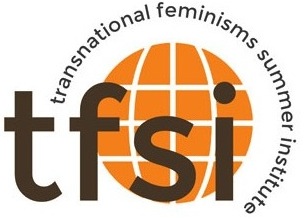 This summer, OSU will be hosting a weekly-long Transnationalism Feminisms Summer Institute (TFSI) from July 7-11. This idea is inspired by a Summer Seminar that the Radcliffe Institute/Schlesinger Library hosted on “Sequels to the 1960s.” I was only there for a day to give a talk, but the experience felt like a summer camp for feminist scholars. This past summer, I reconnected with Laura Briggs, chair of Women’s and Gender Studies at the University of Massachusetts, Amherst; along with Karen Leong at Arizona State University (who is co-editing a special issue of Frontiers: A Journal of Women’s Studies on transnational feminism), we decided to organize the TFSI.
This summer, OSU will be hosting a weekly-long Transnationalism Feminisms Summer Institute (TFSI) from July 7-11. This idea is inspired by a Summer Seminar that the Radcliffe Institute/Schlesinger Library hosted on “Sequels to the 1960s.” I was only there for a day to give a talk, but the experience felt like a summer camp for feminist scholars. This past summer, I reconnected with Laura Briggs, chair of Women’s and Gender Studies at the University of Massachusetts, Amherst; along with Karen Leong at Arizona State University (who is co-editing a special issue of Frontiers: A Journal of Women’s Studies on transnational feminism), we decided to organize the TFSI.
Since that initial inspiration, the TFSI organizing team has expanded to include a number of faculty, students, and staff at OSU who are volunteering their time to plan the institute. We have received cosponsorships from a number of other institutions, including Emory University, Indiana University, Rutgers University, University of California, Santa Barbara, University of Minnesota. Our hope is that we can collectively sponsor future summer institutes on other feminist topics and that the host institution will rotate among campuses.
At the TFSI at OSU, we plan to begin each day of the institute with a roundtable that engages with important issues in the field of transnational feminism. The roundtable topics include: “A State of the Field,” “Indigenous Transnational Feminism,” “Body Politics,” Locating Transnational Feminisms and Activism” and “The Transnational Turn and Borderland Epistemologies.” We have invited over twenty roundtable speakers who come from academic institutions in Canada, Mexico, Russia, and the U.S. to speak on these topics. To complement the theme of “Indigenous Transnational Feminism,” the TFSI will sponsor a tour of the Newark Earthworks.
Following these roundtables, institute attendees will attend paper workshop sessions. These panels are designed to provide feedback to authors so that they might strengthen and revise their work for publication. We received 142 applications for our initial call for papers. Most of these applicants were interested in workshopping their papers. To keep the institute to a manageable size, we selected 27 workshop participants. Their topics encompass examinations of international organizations, labor, media representations, social movements, as well as translating and transnationalizing feminism. Their studies analyze these developments in various parts of the world, including Argentina, Bangladesh, Bolivia, Brazil, Burma, China, the Dominican Republic, Ecuador, Egypt, Haiti, Japan, Liberia, Malaysia, Nicaragua, Patagonia, the Philippines, Rwanda, and Syria. The scholars themselves will be coming from Asia, Europe, Latin America, and North America.
We hope that feminist scholars and students at OSU will take advantage of this opportunity to engage with establish and emerging scholars of transnational feminisms. We ask that attendees commit to attending the entire week. That way, we can talk, eat, and fully immerse ourselves in this feminist summer camp experience. – Professor Judy Tzu-Chun Wu
Check out the Registration Site here!
